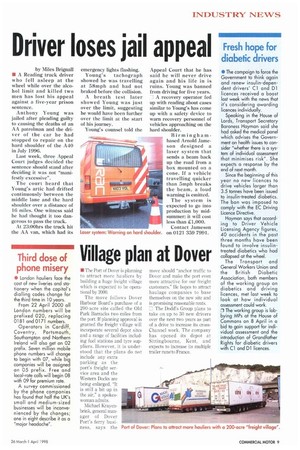diabetic drivers
Page 11

If you've noticed an error in this article please click here to report it so we can fix it.
• The campaign to force the Government to think again and renew insulin-dependent drivers' Cl and D1 licences received a boost last week with the news that it's considering awarding licences individually.
Speaking in the House of Lords, Transport Secretary Baroness Hayman said she had asked the medical panel which advises the Government on health issues to consider "whether there is a system of individual assessment that minimises risk". She expects a response by the end of next month.
Since the beginning of this year no new licences to drive vehicles larger than 3.5 tonnes have been issued to insulin-treated diabetics. The ban was imposed to comply with the EC Driving Licence Directive.
Hayman says that according to Driver Vehicle Licensing Agency figures, 40 accidents in the past three months have been found to involve insulintreated diabetics who had collapsed at the wheel. The Transport and General Workers Union and the British Diabetic Association, both members of the working group on diabetics and driving licences, met last week to look at how individual assessment could work.
1 The working group is lobbying MPs at the House of Commons on 8 April in a bid to gain support for individual assessment and the introduction of Grandfather Rights for diabetic drivers with Cl and D1 licences.




































































































